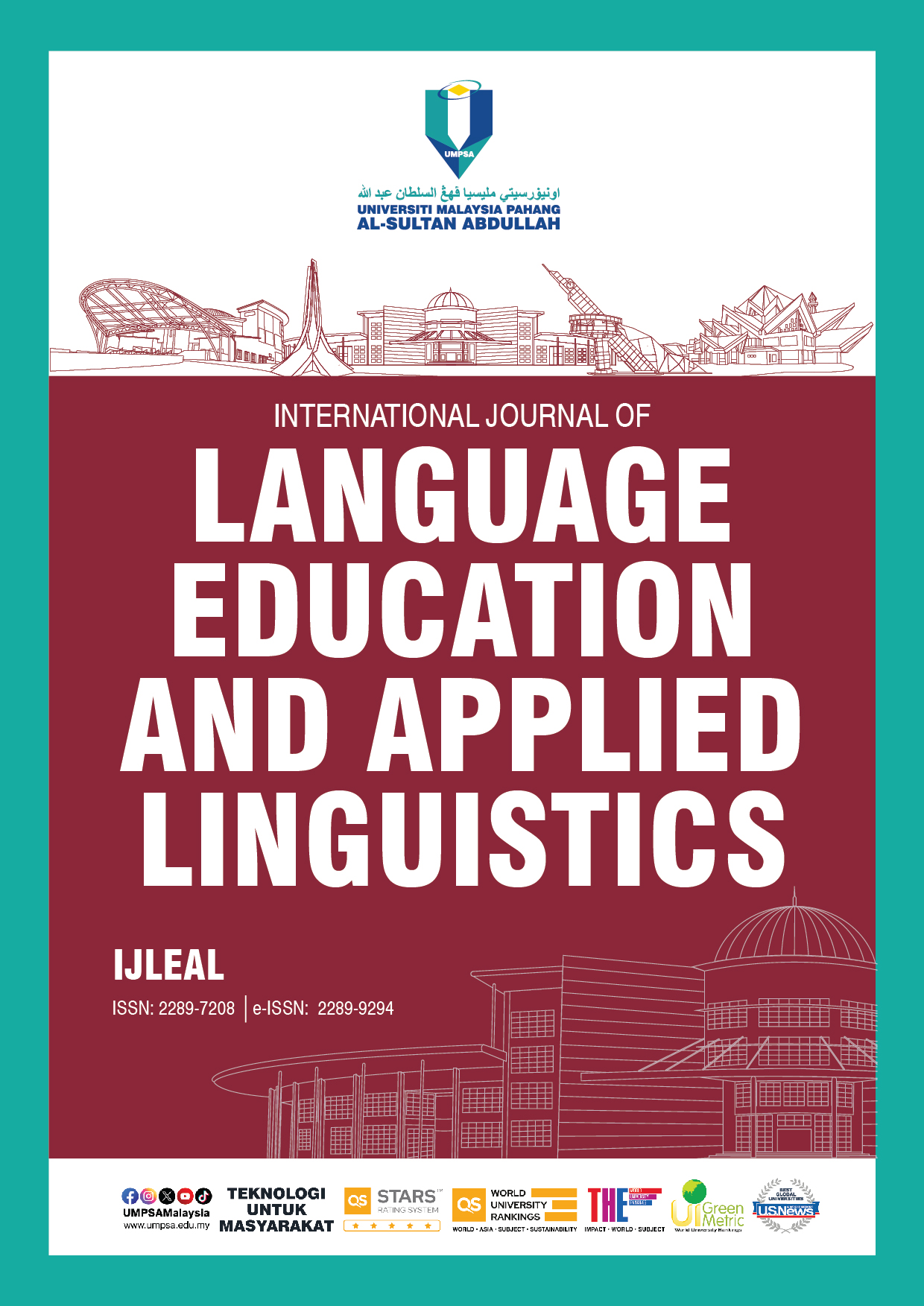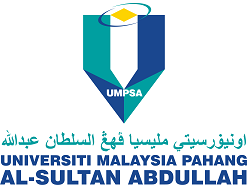Enhancing Prophetic Arabic Vocabulary for Understanding Al-Arba'in Al-Nawawiyah through Board Game: A Systematic Literature Review
DOI:
https://doi.org/10.15282/be0ynm57Keywords:
Al-Arba'in al-Nawawiyah, Arabic, Board game, Gamification, Systematic literature reviewAbstract
This research investigates the development and application of a board game that aims to improve students’ comprehension of prophetic Arabic vocabulary in the context of al-Arba'in al-Nawawiyah. Traditional methods of vocabulary acquisition often rely on rote memorisation, which can disengage students and limit long-term retention, leading to disengagement and limited retention among learners. The proposed board game aims to address these challenges by introducing an interactive and competitive learning environment that enhances engagement and aids in the retention of key Arabic terms. A systematic literature review was conducted based on the databases, which are 1) Mendeley, 2) JSTOR, and 3) Taylor & Francis, as many published journals have high indexes and reliable sources. Through the systematic literature review (SLR), we explore the effectiveness of gamification in language learning, specifically within religious studies, and outline the process of developing a board game tailored to al-Arba'in al-Nawawiyah. The findings reveal the potential of gamification to significantly aid in vocabulary retention and comprehension, especially for non-native speakers engaging with complex religious texts. The paper concludes with suggestions for future research and practical applications in Islamic educational settings to improve prophetic Arabic vocabulary for comprehending al-Arba’in al-Nawawiyah through board game.
References
Ab. Rahman, R., Ahmad, S., & Hashim, U. R. (2018). The effectiveness of gamification technique for higher education students engagement in polytechnic Muadzam Shah Pahang, Malaysia. International Journal of Educational Technology in Higher Education, 15(1), 2-16. https://doi.org/10.1186/s41239-018-0123-0
Abdallah Hussein El-Omari (2018). Problems of learning Arabic by non-Arabic speaking children: Diagnosis and treatment. Journal of Language Teaching and Research, 9(5), 1095-1100. http://dx.doi.org/10.17507/jltr.0905.25
Abdullah, N. M. S. A. N., Abdullah, N. S., & Kama, N. (2021). The needs of huffaz Quran in learning Arabic language and the relationship between memorizing Quran and understanding Arabic language. Al-Qanatir: International Journal of Islamic Studies, 23(1), 113-125.
Aldebsi, A. H. M. H. A., & Eldesoky, E. M. A. (2023). Challenges and obstacles of teaching and learning the Arabic Language in secondary religious schools in Malaysia, suggestions and solutions. International Journal of Academic Research in Business and Social Sciences, 13(5), 2828-2838. https://doi.org/10.6007/ijarbss/v13-i5/17327
Alhirtani, N.A. (2018). The influence of Arabic language learning on understanding of Islamic legal sciences—A study in the Sultan Idris Education University. International Education Studies, 11(2), 55-66. https://doi.org/10.5539/ies.v11n2p55
Aulia, V. I., & Anggraeni, W. (2023). Urgensi pembelajaran Bahasa Arab dalam Pendidikan Islam. Uktub: Journal of Arabic Studies, 3(1), 22-40. https://doi.org/10.32678/uktub.v3i1.7854
B, M. R., & Al Qifari, A. (2024). Nilai-nilai pendidikan akhlak dalam kitab Al-arba’in Al-nawawiyah karya Imam Nawawi. Inspiratif Pendidikan, 12(2), 763-792. https://doi.org/10.24252/ip.v12i2.42127
Balaskas, S., Zotos, C., Koutroumani, M., & Rigou, M. (2023). Effectiveness of GBL in the engagement, motivation, and satisfaction of 6th grade pupils: A Kahoot! approach. Education Sciences, 13(12), 1-13. https://doi.org/10.3390/educsci13121214
Bhatt, A. N., & Chakrabarti, A. (2022). Gamification of design thinking: A way to enhance effectiveness of learning. Artificial Intelligence for Engineering Design, Analysis and Manufacturing: AIEDAM, 36, 1-20. https://doi.org/10.1017/S0890060422000154
Bouchrika, I., Harrati, N., Wanick, V., & Wills, G. (2021). Exploring the impact of gamification on student engagement and involvement with e-learning systems. Interactive Learning Environments, 29(8), 1244-1257. https://doi.org/10.1080/10494820.2019.1623267
Carissimi, M. C., Creazza, A., & Colicchia, C. (2023). Crossing the chasm: Investigating the relationship between sustainability and resilience in supply chain management. Cleaner Logistics and Supply Chain, 7, Article 100098. https://doi.org/10.1016/j.clscn.2023.100098
Christopoulos, A., & Mystakidis, S. (2023). Gamification in education. Encyclopedia 2023, 3(4), 1223-1243. https://doi.org/10.3390/encyclopedia3040089
Ebrahim Alqudaimi, Wail Muin AlHaj Said Ismail & Abdul Muhsein Sulaiman. (2021). The use of prophetic educational methods in teaching Islamic education from the point of view of teachers in the city of Hodeidah, Yemen (Arabic). The Online Journal of Islamic Education, 9(1), 46-59.
El Archi, Y., Benbba, B., Nizamatdinova, Z., Issakov, Y., Vargáné, G. I., & Dávid, L. D. (2023). Systematic literature review analysing smart tourism destinations in context of sustainable development: current applications and future directions. Sustainability, 15(6), Article 5086. https://doi.org/10.3390/su15065086
Fadhli, M., Brick, B., Setyosari, P., Ulfa, S., & Kuswandi, D. (2020). A meta-analysis of selected studies on the effectiveness of gamification method for children. International Journal of Instruction, 13(1), 845-854. https://doi.org/10.29333/iji.2020.13154a
Fatma Zohra Souag. (2023). Linguistic direction in explaining the sunnah of the prophet. Elementary Education Online, 22(3), 86–97. https://ilkogretim-online.org/index.php/pub/article/view/80
Firgany, M. (2024). Students' perceptions of non-native Arabic and native Arabic teachers [Master's thesis, the American University in Cairo]. AUC Knowledge Fountain. https://fount.aucegypt.edu/etds/2232
Gkizani, A. M., & Galanakis, M. (2022). Goal setting theory in contemporary businesses: A systematic review. Psychology, 13(3), 420-426. https://doi.org/10.4236/psych.2022.133028
Gent, B., & Muhammad, A. (2019). Memorising and reciting a text without understanding its meaning: A multi-faceted consideration of this practice with particular reference to the Qur’an. Religions, 10(7), Article 425. https://doi.org/10.3390/rel10070425
Hermawan, L., & Ismiati, M. B. (2022). Penerapan augmented reality berbasis minimax algorithm pada game papan cerdas. Jurnal Buana Informatika, 13(1), 21-30. https://doi.org/10.24002/jbi.v13i1.4929
Hung, H. T., & Yeh, H. C. (2023). Augmented-reality-enhanced game-based learning in flipped English classrooms: Effects on students’ creative thinking and vocabulary acquisition. Journal of Computer Assisted Learning, 39(6), 1786-1800. https://doi.org/10.1111/jcal.12839
Jaffar, M. N., Ab. Rahman, A., Ahmad, M. I., Muhammad Nawawi, M. A. A., Abdul Hamed, K. R., & Mansor, N. (2024). Development of Arabic vocabulary gamification model: A pilot study. Journal of Advanced Research in Computing and Applications, 34(1), 1-18. https://doi.org/10.37934/arca.34.1.118
Labib, A. (2021). Pendekatan pendidikan dalam studi Islam. Istifkar, 1(1), 32-52. https://doi.org/10.62509/ji.v1i1.19
Laila, N. A. (2022). Pengaruh penggunaan metode (mim-mem) mimicry memorization terhadap peningkatakan kemampuan menghafal kosakata bahasa Arab siswa kelas V MI Al-mustawa Gunungsindur Bogor. Jurnal Dirosah Islamiyah, 5(1), 8-18. https://doi.org/10.47467/jdi.v5i1.2072
Lubis, I., Zulkipli, L. & Muhammad Nizar Hasan. (2022). The students’ difficulties in practicing Arabic’s Maharah Kalam at the Arabic language education department Iain Langsa. El-Tsaqafah Jurnal Jurusan PBA, 21(1), 1-14. https://doi.org/10.20414/tsaqafah.v21i1.4690.
Luo, Z. Gamification for educational purposes: What are the factors contributing to varied effectiveness? Educ Inf Technol, 27, 891–915. https://doi.org/10.1007/s10639-021-10642-9
Ma’rifatun. (2019). Strategi pembelajaran nahwu saraf di MA pondok pesantren. Al Ghazali Jurnal Kajian Pendidikan Islam dan Studi Islam, 2(2), 103-116.
Mohtar, S., Jomhari, N., Omar, N. A., Mustafa, M. B. P., & Yusoff, Z. M. (2023). The usability evaluation on mobile learning apps with gamification for middle-aged women. Education and Information Technologies, 28(1), 1189–1210. https://doi.org/10.1007/s10639-022-11232-z
Munn, Z., Peters, M. D. J., Stern, C., Tufanaru, C., McArthur, A., & Aromataris, E. (2018). Systematic review or scoping review? Guidance for authors when choosing between a systematic or scoping review approach. BMC Medical Research Methodology, 18(1). Article 143, https://doi.org/10.1186/s12874-018-0611-x
Muthalib, A. R. A., & Ibrahim, B. (2020). Methods for understanding of prophet’s hadis: Application towards hadis of jihad. International Journal of Academic Research in Business and Social Sciences, 10(4), 380–395. https://doi.org/10.6007/ijarbss/v10-i4/7141
Prathyusha, N. (2020). Role of gamification in language learning. International Journal of Research and Analytical Reviews, 7(2), 577-583.
Rahmatan, M., Rahmatan, M., Sani, N., JH, D. A., Putra, M. H. A. H., & Salsabila, F. (2023). The role of strengthening vocabulary memorization in facilitating arabic language learning students babul mu’arrif jambi islamic boarding school. لسـانـنـا (LISANUNA): Jurnal Ilmu Bahasa Arab Dan Pembelajarannya, 13(1), 83-98. https://doi.org/10.22373/ls.v13i1.18032
Rizov, T., Djokic, J., & Tasevski, M. (2019). Design of a board game with augmented reality. FME Transactions, 47(2), 253-257. https://doi.org/10.5937/fmet1902253R
Roslan, N. N. A., & Sahrir, M. S. (2020). The effectiveness of Thinglink in teaching new vocabulary to non-native beginners of the Arabic language. IIUM Journal of Educational Studies, 8(1), 32–52. https://doi.org/10.31436/ijes.v8i1.274
Rowin, I. A. (2018). Verbalisme bahasa Arab dalam kehidupan beragama masyarakat muslim. Nazhruna: Jurnal Pendidikan Islam, 1(1), 12-23. https://doi.org/10.31538/nzh.v1i1.40
Royani, A., Palaloi, Z., Susiawati, I., & Amartiwi, R. Y. (2022). The role of Arabic poetry in Nahwu rules. Jurnal Al Bayan: Jurnal Jurusan Pendidikan Bahasa Arab, 14(1), 79-94. https://doi.org/10.24042/albayan.v14i1.9592
Saputra, A., Rasyid, M. H. L., & Yunus, M. A. (2023). Analisis kesulitan belajar bahasa Arab siswa SMP IX perguruan Islam modern amanah 1. Jurnal Syiar-Syiar, 3(1), 71-80. https://doi.org/10.36490/syiar.v3i1.562
Serhan, S. A. L., & Yahaya, N. (2022). A systematic review and trend analysis of personal learning environments research. International Journal of Information and Education Technology, 12(1), 43-53. https://doi.org/10.18178/ijiet.2022.12.1.1585
Siddaway, A. P., Wood, A. M., & Hedges, L. V. (2019). How to do a systematic review: A best practice guide for conducting and reporting narrative reviews, meta-analyses, and meta-syntheses. Annual Review of Psychology, 70, 747-770. https://doi.org/10.1146/annurev-psych-010418-102803
Shahzad, M., Alhoori, H., Freedman, R., & Rahman, S. A. (2022). Quantifying the online long-term interest in research. Journal of Informetrics, 16(2), Article 101288. https://doi.org/10.1016/j.joi.2022.101288
Sribagus, S. (2018). Kendala dan kendali penguasaan bahasa asing di madrasah. Society, 4(1), 50-64. https://doi.org/10.20414/society.v4i1.330
Strmečki, D., Bernik, A. & Radošević, D. (2015). Gamification in e-learning: Introducing gamified design elements into e-learning systems. Journal of Computer Science, 11(12), 1108-1117. https://doi.org/10.3844/jcssp.2015.1108.1117
Toorajipour, R., Sohrabpour, V., Nazarpour, A., Oghazi, P., & Fischl, M. (2021). Artificial intelligence in supply chain management: A systematic literature review. Journal of Business Research, 122(2021), 502-517. https://doi.org/10.1016/j.jbusres.2020.09.009
Turan, Z., & Karabey, S. C. (2023). The use of immersive technologies in distance education: A systematic review. Education and Information Technologies, 28(12), 16041–16064. https://doi.org/10.1007/s10639-023-11849-8
Wazeer, F. S. (2023). A study on the usage of the board race game ; as a grammar retention strategy for english as a second language (ESL) Learners. Vidyodaya Journal of Humanities and Social Sciences, 8(1), 14-38. https://doi.org/10.31357/fhss/vjhss.v08i01.02
Umam, A. Z., & Muhid, A. The challenge of moral decadence perspectives on the study of Al-Arba'in An-Nawawiyah Hadith. Al-Hayat: Journal of Islamic Education, [S.l.], 4(1), 44-57. https://doi.org/10.35723/ajie.v4i1.93.
Yahaya, H. B., Shaharuddin, H. N., Abdul Raup, F. S., Ahmad, N. Z., & Shafri, M. H. (2022). Students’ perception of the use of gamification in Arabic language learning. International Journal of Modern Languages and Applied Linguistics, 6(2), 1-13. https://doi.org/10.24191/ijmal.v6i2.14647
Yazidi Alaoui, Asmaa. (2023). In search of effective second language Arabic vocabulary teaching strategies: Theory and implementation. All Graduate Plan B and other Reports, Spring 1920 to Spring 2023. Article 1713. https://digitalcommons.usu.edu/gradreports/1713
Yucuma, D., Riquelme, I., & Avellanal, M. (2021). Painful total hip arthroplasty: A systematic review and proposal for an algorithmic management approach. Pain Physician, 24(3). https://doi.org/10.36076/ppj.2021/24/193
Zamziba, M. N. F., Ahmad H. Osman, R. Ahmad, M. A., Rashid, R. F. A., Md. Noor, M. L. A. H., Rizka Rivensky, & Ahmad Zabidi, U.H. (2024). Exploring minecraft in the primary school syllabus for enhancing arabic learning: A systematic literature review. International Journal of Language Education and Applied Linguistics, 14(1), 4-12. https://doi.org/10.15282/ijleal.v14i1.9648
Zamziba, M. N. F. B., Osman, R. B. A. H., Ahmad, M. A. B., Rashid, R. F. A. B., Md. Noor, M. L. A. H. B., Rivensky, R., & Zabidi, U. A. B. A. (2023). Applying Minecraft to learn Arabic language and Islamic studies: Literature review. In M. Rahim, A. A. Ab Aziz, I. Saja @ Mearaj, N. A. Kamarudin, O. L. Chong, N. Zaini, A. Bidin, N. Mohamad Ayob, Z. Mohd Sulaiman, Y. S. Chan, & N. H. M. Saad (Eds.), Embracing Change: Emancipating the Landscape of Research in Linguistic, Language and Literature, vol 7. European Proceedings of Educational Sciences (pp. 532-542). European Publisher. https://doi.org/10.15405/epes.23097.48.
Downloads
Published
Issue
Section
License
Copyright (c) 2025 The Author(s)

This work is licensed under a Creative Commons Attribution-NonCommercial 4.0 International License.




